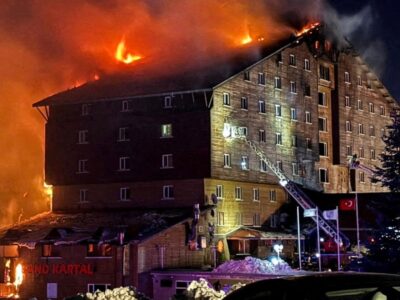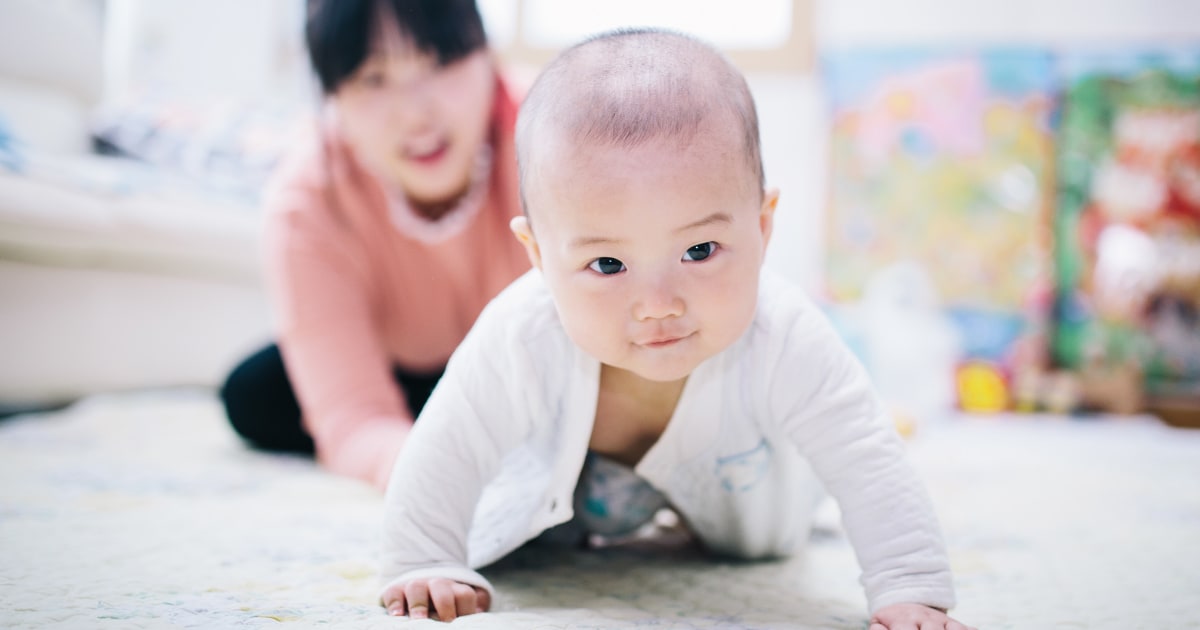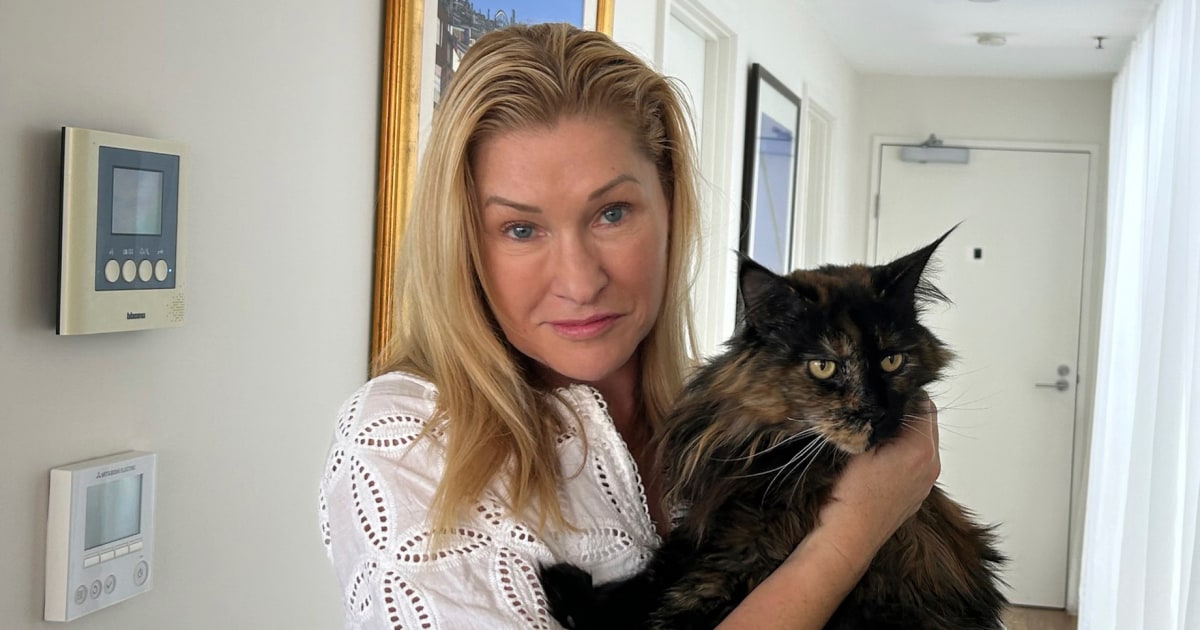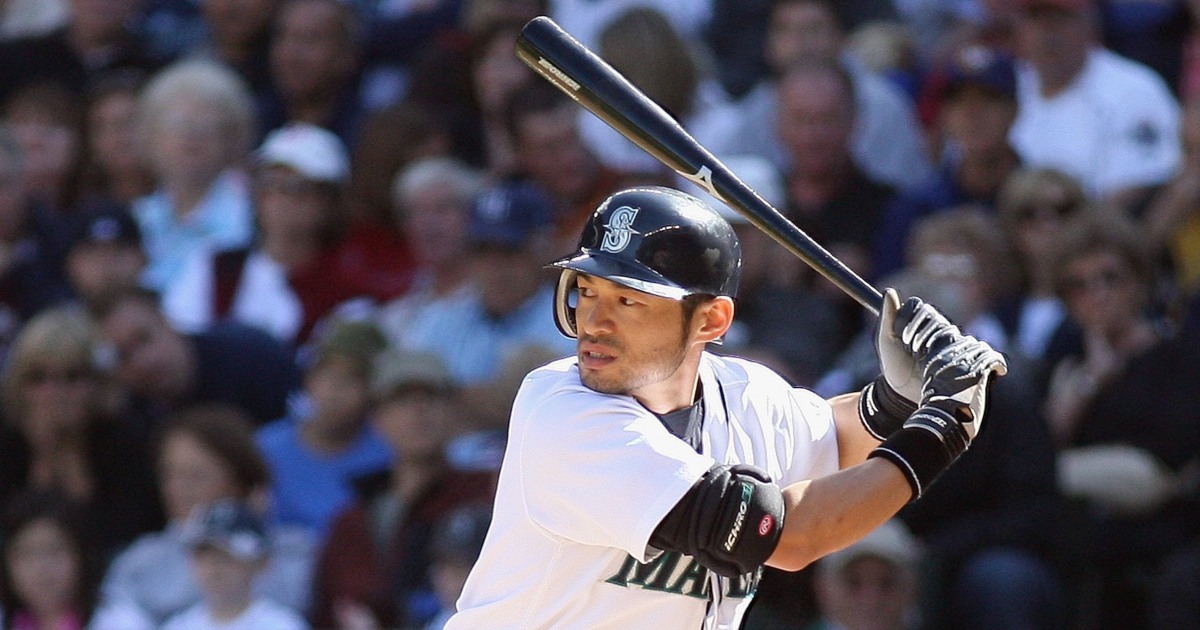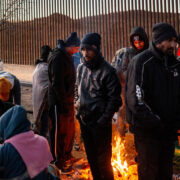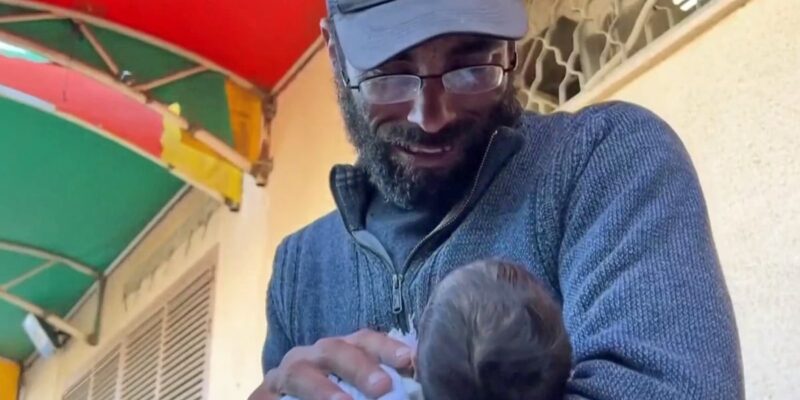
Holding the motionless body of his newborn baby wrapped in a blanket, Yahya Al-Batran imagines what his son, Jumaa, would say if he could speak.
“I left you for God, Daddy,” Batran says as Jumaa, eyes open and dressed in a jumper too big for his frail body, lies still in his arms.
Jumaa is one of at least five children to have succumbed to the bitter cold and difficult conditions consuming Gaza this winter amid Israel’s deadly offensive in the Palestinian enclave, according to local health officials.
His twin brother, Ali, was fighting for his life in intensive care, officials at the Al-Aqsa Martyrs Hospital in Deir al-Balah told NBC News on Wednesday, after Batran and his wife woke up to find the two infants, who were born premature, lying motionless in their tent days ago.
In an interview with NBC News’ crew on the ground on Sunday, Batran recounted how he woke to the sounds of his wife desperately trying to rouse their newborn twins as they lay motionless in the cold tent — now home to the family of eight after they had fled from northern Gaza’s Beit Lahia.
They raced Jumaa and Ali to the Al-Aqsa hospital, but it was too late for baby Jumaa, Batran said. “He was frozen.”
“I couldn’t protect my children. I watched them die in front of my eyes,” Batran said, describing how he had slept without a blanket at night, using everything the family had to keep his children warm.
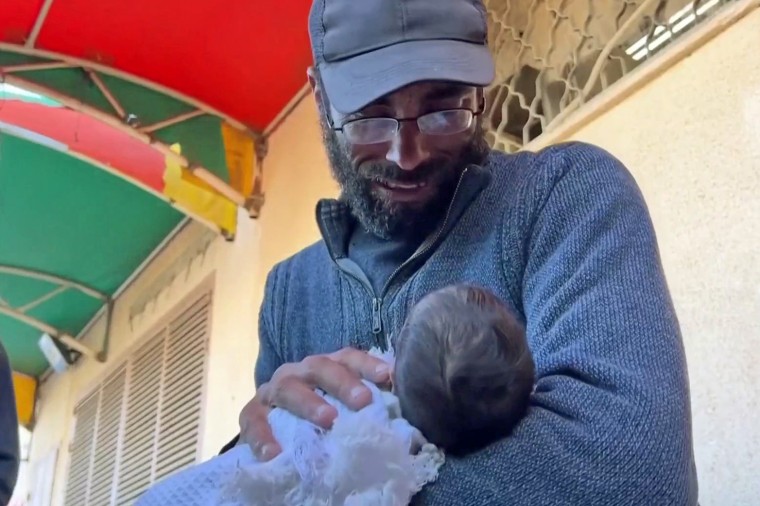
Yahya Al-Batran holds the body of his newborn baby, Jumaa, wrapped in a blanket.NBC News
Temperatures in Gaza dropped below 45 degrees Fahrenheit at night this week, while heavy rains flooded more than 1,500 tents sheltering displaced families across the enclave, according to Gaza’s Civil Defense agency.
Local health officials say more than 45,000 people have been killed in Israel’s offensive in the enclave, where children not only confront the daily reality of Israeli attacks, but have also been displaced from their homes amid an almost complete destruction of services.
Winter weather has added another deadly challenge.
“It is so cold now in winter that … there have been three newborn deaths just in the last week because of the tents and the lack of foods available for them unfortunately,” Dr. Mimi Sayed, an American emergency physician volunteering at the Al-Aqsa hospital, told NBC News’ crew on the ground in an interview Tuesday.
“Nothing compares to what’s happening in Gaza,” said Sayed.
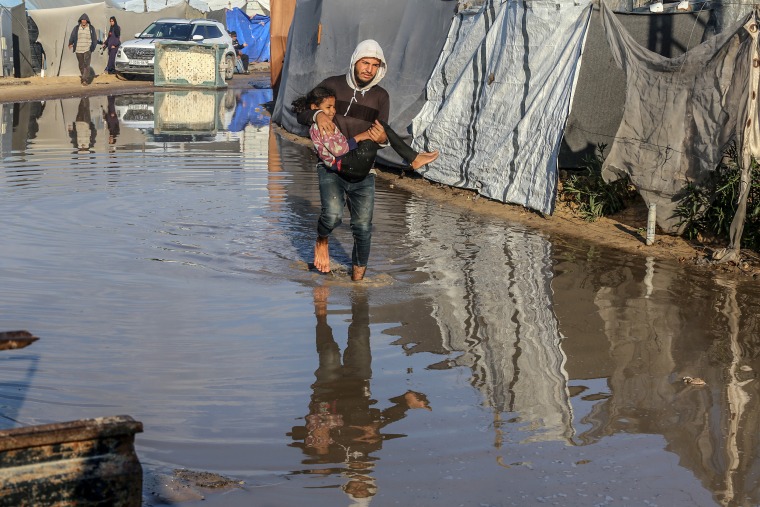
A Palestinian man carries a child through a puddle at a camp Wednesday in the Mawasi area of southern Gaza.Abed Rahim Khatib / Anadolu via Getty Images
Médecins Sans Frontières, or Doctors Without Borders, sounded the alarm Friday, warning they expected more infants to be affected by hypothermia.
Speaking in a voice recording published by MSF in a post on X, Dr. Mohammad Abu Tayyem, a pediatrician at Nasser hospital in Khan Younis, said that doctors were seeing an “increased number of children with respiratory infections like acute bronchiolitis, pneumonia, upper respiratory tract infections and even bronchial asthma exacerbations.”
And, he said, “due to the increased number of premature babies and the low-birth-weight babies in this period in the ICU, we’re expecting more babies to come to our ER complaining from hypothermia” as he attributed their suffering to the cold weather and poor conditions children are being forced to live in amid Israel’s offensive.
Babies are unable to regulate their body temperature in the same way that adults can, making them particularly vulnerable to cold weather without adequate shelter and warm clothing — both in short supply.
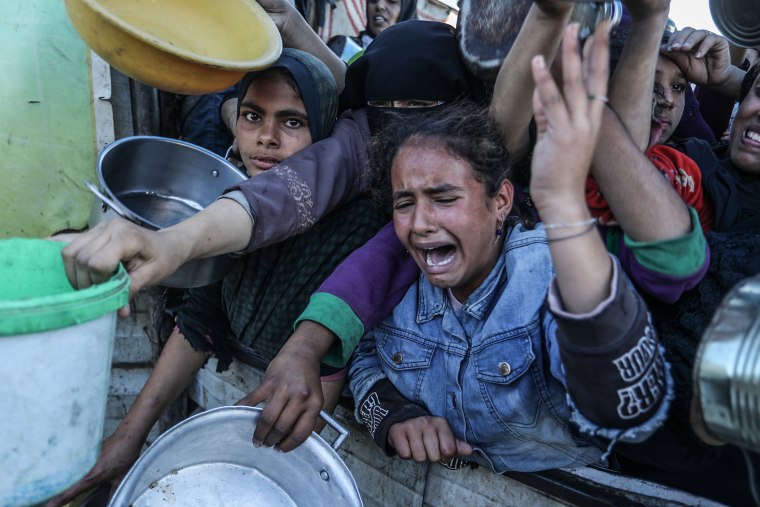
Palestinians line up to receive meals distributed by charity organizations in Khan Younis on Thursday.Abed Rahim Khatib / Anadolu via Getty Images
Asked to respond to reports of infants displaced by Israel’s assault dying from the cold weather, IDF spokesman Lt. Col. Nadav Shoshani told reporters the military had looked into those reports but could not find any “information we can work with” from sources who were “not Hamas-related.”
“The reality of war is a tough thing and obviously that’s part of why we don’t start wars,” he said on Thursday, adding that hostages taken captive during Hamas’ Oct. 7 terror attack were also experiencing winter in Gaza. He said Israeli officials were working to bring “equipment for the winter” into the enclave, but did not elaborate on those efforts.
Meanwhile, video captured by NBC News’ crew on the ground showed families across a tent encampment in Khan Younis trying to shovel and sweep dirty rainwater from their tents, while others gathered around a soup kitchen in the rain, holding out pots and pans and crying out for warm food.
“We had a wonderful life, but look at how we have become,” said 11-year-old Marwan Amer El-Akhres, who was helping his family try to move water away from their tent. “We have become so humiliated.”
“It is very hard and cold. It’s freezing,” he said.
Recalling a time when his family, displaced from Rafah, had been able to sit safe and warm in their home “enjoying the warm of winter,” he said: “Now, look at this.”
“Is this a life?”




